セルラーセキュリティカメラ: 知っておくべきことすべて

脅威は常に私たちの中に存在します。私たちは、自宅、会社、財産を守る方法を常に模索しなければなりません。監視技術における最も革新的な進歩の 1 つである携帯セキュリティ カメラを例に挙げてみましょう。この記事では、動作メカニズム、利点と欠点、データの使用法など、携帯セキュリティ カメラについてさまざまな観点から説明します。
セルラーセキュリティカメラはどのように機能しますか?
セルラーセキュリティカメラは他のタイプのセキュリティカメラと同様に機能しますが、Wi-Fiやイーサネットに依存せず、モバイルネットワークに接続します。これらのカメラは SIMカードは、携帯電話と同じように、3G、4G、さらには5Gネットワークを介してサーバーまたはクラウドプラットフォームと通信します。カメラはビデオ映像をキャプチャし、SDカードにローカルに保存するか、リモートアクセス用にクラウドストレージにアップロードすることができます。
セルラーセキュリティカメラのメリット
セルラー セキュリティ カメラは、従来のシステムに比べて、次のようないくつかの明確な利点があります。
Wi-Fiに依存しません。 携帯カメラは Wi-Fi 接続なしでも機能します。 遠隔地に最適 信号が弱いか全くない。
簡単なインストール。 ルーターや複雑な配線が不要なので、設置は簡単です。電源、SIMカード、 適切なカメラの配置 必要なのはこれだけです。
非常にポータブル。 セルラー セキュリティ カメラは、インフラストラクチャを変更することなく、場所間で簡単に移動できます。
セルラーセキュリティカメラの欠点
携帯型セキュリティカメラには欠点がないわけではありません。
データの制限。 セルラーカメラはデータプランに依存しており、高解像度のストリーミングや連続録画を行うとすぐに消費される可能性があります。ユーザーは追加コストやサービス制限に直面する可能性があります。
携帯電話の通信範囲への依存。 セルラーカメラにはモバイルネットワークのカバレッジが必要です。信号が弱い、またはまったくないエリアでは、データの送信や安定した接続の維持が困難になる場合があります。
電源要件。 セルラー セキュリティ カメラは、充電式バッテリー、太陽光発電、または直接電力によって継続的に電力を供給されます。遠隔地での電源管理は困難な場合があります。
携帯電話セキュリティカメラはどのくらいのデータを使用しますか?
平均して、標準的な 1080p カメラはビデオを録画するときに 1 時間あたり約 60 MB のデータを使用しますが、ライブ ストリーミングを継続的に行うとこの数値は大幅に増加する可能性があります。1 か月で、キャプチャおよびストリーミングされる映像の量に応じて、1 GB から 50 GB を超えるデータが消費される可能性があります。
セルラーセキュリティカメラの運用にはどれくらいの費用がかかりますか?
携帯電話セキュリティカメラの価格は、通常150ドルから500ドルで、次のような機能によって異なります。 ビデオ解像度、夜間視力、ストレージ容量次のような機能を備えたより高度なモデル パン・チルト・ズーム (PTZ) やサーマルイメージングはさらに高くなる可能性があります。
さらに、データ プランは多岐にわたります。ライト ユーザーの場合、月額 1 GB ~ 5 GB のデータ プラン (約 10 ~ 30 ドル) で十分でしょう。ただし、高解像度の映像を継続的に撮影する必要がある場合や、複数のカメラを所有している場合は、10 GB 以上のデータ プラン (50 ~ 100 ドル以上) が必要になる場合があります。特に広範囲の監視が必要なユーザーの場合、時間の経過とともにこれらのコストがかさむ可能性があります。
携帯電話セキュリティカメラに最適なSIMカードをお探しの場合は、 柔軟な契約不要プランを備えたEIOTCLUB 5G SIMカード たとえば、6GB で 39.99 ドル、24GB で 109.00 ドルなどです。EIOTCLUB 5G SIM カードは、リーズナブルなコストで信頼性の高い監視を保証します。
携帯型セキュリティカメラに最適な場所
セルラー セキュリティ カメラは、Wi-Fi 接続が利用できないさまざまな環境に最適です。
| 最高の場所 | 詳細 |
|---|---|
| 遠隔地 | 安定した Wi-Fi のない小屋、農場、建設現場。セルラー カメラは隔離されたエリアでのリアルタイム監視を提供します。 |
| バケーションホーム | インターネット接続が不安定なセカンドホームで、物件の遠隔監視が可能です。 |
| RVとボート | 車両や船舶が遠隔地に駐車または停泊している場合でも、ライブ更新と録画を提供します。 |
| イベントと臨時設置 | 屋外イベントや一時的なセキュリティのニーズに対応します。恒久的なインフラストラクチャを必要とせず、簡単に設置および撤去できます。 |
最後の言葉
セルラーセキュリティカメラは、Wi-Fiアクセスが限られている、またはまったくないエリアを監視する必要があるユーザーにとって、柔軟で信頼性の高いソリューションです。コインの表と裏のように、セルラーセキュリティカメラは、携帯性、設置の容易さ、従来のネットワークからの独立性という点で明確な利点がありますが、独自の課題もあります。データ使用量とハードウェアのコストを、特定の監視ニーズと比較検討する必要があります。 あなたにとって最適なものを見つけましょう。
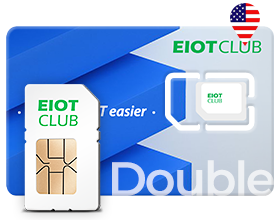
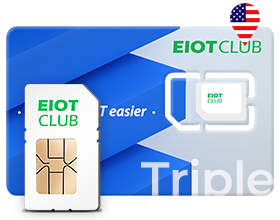



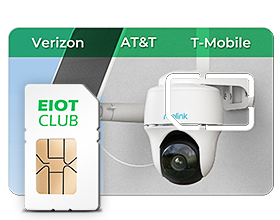
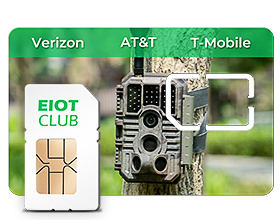
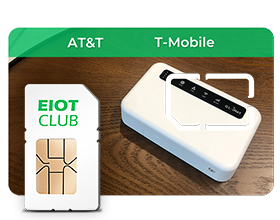
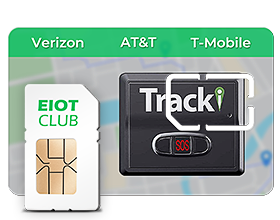


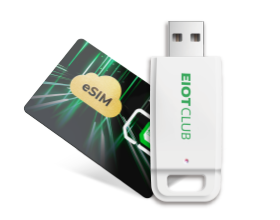









 例えば
例えば
 リフィル
リフィル






